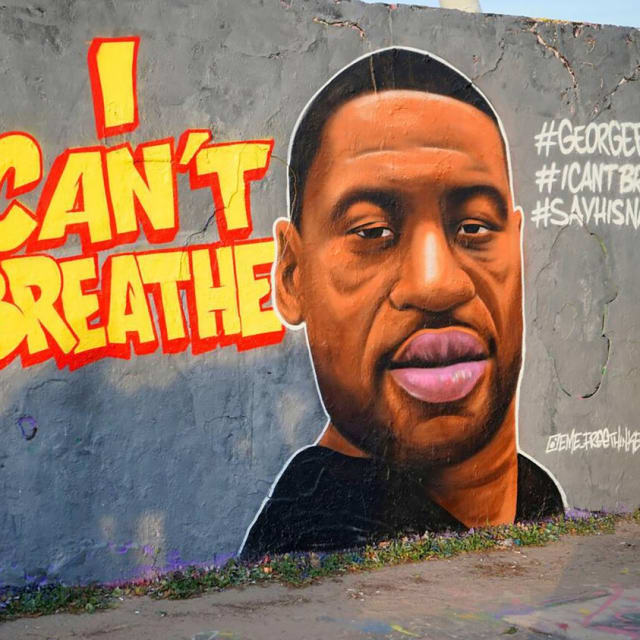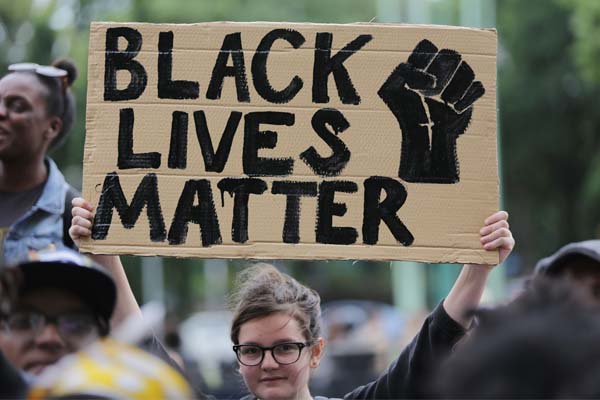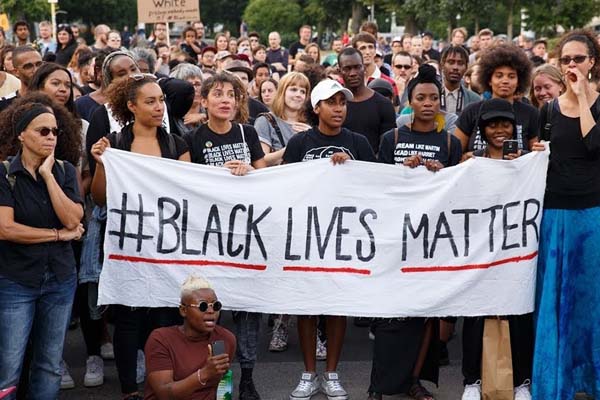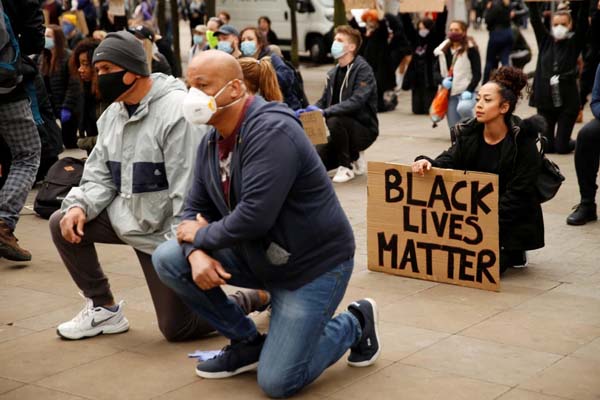The George Floyd Uprising has Brought us Hope.

Black Lives Matter
he name of George Floyd looks set to enter the history books along with Rosa Parks and Emmett Till, as the face of a moment that fueled a movement. Floyd’s murder in Minneapolis was one that may have been added to the long tally of Black Americans who have died at the hands of police officers. It could have caused a brief, mostly local, flurry of attention before the world moved on.
The slow-motion execution of George Floyd has ignited an incandescent social movement. In every state and around the world, people of all colors, genders, and ages are coming together to march in fury and in hope, to renounce the past and redeem the future.
The changes triggered by the protests are crucial, but more is needed to uproot the racism so thoroughly embedded in our nation’s social, economic, and political systems. Public policies of the past helped create our current practices of exclusion and disinvestment.
The death of George Floyd, like the death of Stephen Lawrence, obliges us to recognize what makes this moment important. People of all ethnicities did not start protesting in Minneapolis because of the usual general concerns about people of color – or in UK terminology BAME people – suffering various forms of discrimination. They took to the streets because they saw that, yet again, a black man had been killed in public by police flagrantly using excessive force, and no one was being held accountable. That clarity over the convergence of race and police accountability should be the focus for our discussions.
The Stephen Lawrence inquiry had it right: begin with attention to the narrower, specific issues that require immediate action, before opening out to the wider issues that affect society as a whole. Similarly, the organizers of the recent Black Lives Matter marches in the US and the UK put at the center of all their activity the names of black men and women who had died or suffered through police and state violence, and the need to achieve justice for them.
Of course, those involved in the Black Lives Matter movement understand, as most of us do, that all aspects of racism are connected. You cannot fully address one particular manifestation of it without eventually looking at the broader issues. But if we jump straight to talking about racism in all its forms without remembering where our focus is, we will fail to address the specific injustice that has prompted our concern in the first place.

Right now, our conversations and our action on racism should begin with police accountability, how black people like George Floyd are perceived by society, and how their lives are affected by that perception. We need to maintain that focus and stay on that topic to work out specifically how we will tackle that problem. That is how we honored Stephen Lawrence and that is how we should be honoring George Floyd.


Black Lives Matter Movement:
Black Lives Matter (BLM), international social movement, formed in the United States in 2013, dedicated to fighting racism and anti-Black violence, especially in the form of police brutality. The name Black Lives Matter signals condemnation of the unjust killings of Black people by police (Black people are far more likely to be killed by police in the United States than white people) and the demand that society value the lives and humanity of Black people as much as it values the lives and humanity of white people.
BLM activists have held large and influential protests in cities across the United States as well as internationally. A decentralized grassroots movement, Black Lives Matter is led by activists in local chapters who organize their own campaigns and programs. The chapters are affiliated with the Black Lives Matter Global Network Foundation, a nonprofit civil rights organization that is active in the United States, Canada, and the United Kingdom.
BLM was cofounded as an online movement (using the hashtag #BlackLivesMatter on social media) by three Black community organizers—Patrisse Khan-Cullors, Alicia Garza, and Opal Tometi. They formed BLM after George Zimmerman, a man of German and Peruvian descent, was acquitted on charges stemming from his fatal shooting of Trayvon Martin, an unarmed Black teenager, in Sanford, Florida, in February 2012. Zimmerman, a neighborhood-watch volunteer, had seen Martin walking in his neighborhood and called the police because he thought Martin looked “suspicious.” Although police told Zimmerman not to do anything, he followed Martin, got into an argument with him, and shot and killed him. Zimmerman remained free for weeks after the shooting but was finally charged with second-degree murder and arrested in April, after demonstrations demanding his prosecution were held in cities across the United States. At his trial more than a year later, Zimmerman claimed that he had acted in self-defense. His acquittal in July 2013 was widely perceived as a miscarriage of justice and led to further nationwide protests.
The BLM movement expanded in 2014 after the police killings of two unarmed Black men, Eric Garner and Michael Brown. Garner died in Staten Island, New York, after a white police officer held him in a prolonged illegal choke hold, which was captured in a video taken by a bystander. Brown, a teenager, was shot and killed by a white police officer in Ferguson, Missouri. Large protests of these deaths in the name of Black Lives Matter captured national and international attention. The BLM movement thereafter continued to play a prominent role in demonstrations against police brutality and racism. Notably, BLM activists protested the deaths at the hands of police or while in police custody of several other Black people, including Sandra Bland, Philando Castile, Freddie Gray, Laquan McDonald, Tamir Rice, Walter Scott, Alton Sterling, and Breonna Taylor.
In 2020 George Floyd, an unarmed Black man, was pronounced dead after a white Minneapolis police officer knelt on Floyd’s neck for several minutes, despite Floyd’s repeated protests that he could not breathe. Wide circulation of a bystander’s video of Floyd’s last minutes triggered massive demonstrations in cities throughout the United States and across the globe. The tragedy swayed U.S. public opinion in favors of the Black Lives Matter movement while drawing wide attention to the problem of entrenched racism in American society.
The Black Lives Matter movement has many goals. BLM activists seek to draw attention to the many ways in which Black people are treated unfairly in society and the ways in which institutions, laws, and policies help to perpetuate that unfairness. The movement has fought racism through such means as political action, letter writing campaigns, and nonviolent protests. BLM seeks to combat police brutality, the over-policing of minority neighborhoods, and the abuses committed by for-profit jails. Its efforts have included calls for better training for police and greater accountability for police misconduct. BLM activists have also called for “defunding” the police—that is, reducing police department budgets and investing the freed-up funds in community social services, such as mental health and conflict-resolution programs. BLM activists have also worked on voter registration and get-out-the-vote campaigns in Black communities. In addition, BLM programs have celebrated Black artists and writers.
